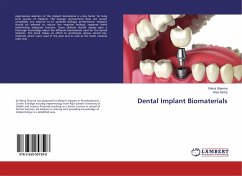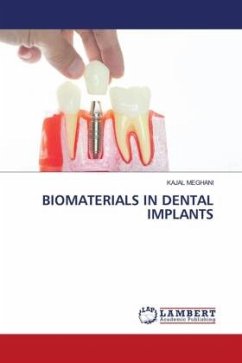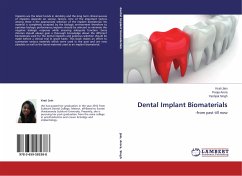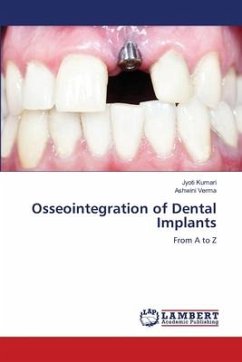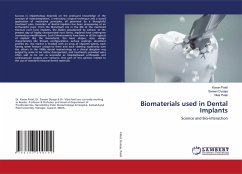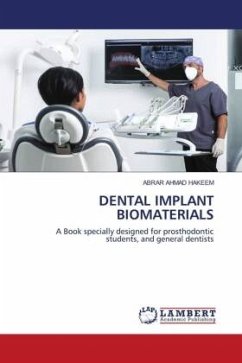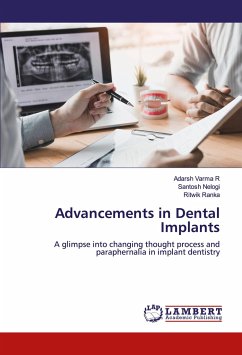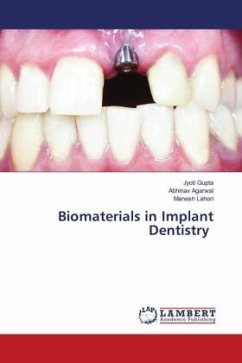
Biomaterials in Implant Dentistry
Versandkostenfrei!
Versandfertig in 6-10 Tagen
40,99 €
inkl. MwSt.

PAYBACK Punkte
20 °P sammeln!
Modern dentistry aims to restore a patient's oral esthetics, contour, function, and speech. Dental implant is a good example of the integrated system of science and technology involved in multiple disciplines including surface chemistry and physics, biomechanics from macro-scale to nanoscale manufacturing technologies, and surface engineering. In line with the growth and mainstreaming of this treatment form, the science of biomaterials, specifically implant materials is also evolving rapidly.Biomaterials have become essential for modern implants. A suitable implant biomaterial integrates into ...
Modern dentistry aims to restore a patient's oral esthetics, contour, function, and speech. Dental implant is a good example of the integrated system of science and technology involved in multiple disciplines including surface chemistry and physics, biomechanics from macro-scale to nanoscale manufacturing technologies, and surface engineering. In line with the growth and mainstreaming of this treatment form, the science of biomaterials, specifically implant materials is also evolving rapidly.Biomaterials have become essential for modern implants. A suitable implant biomaterial integrates into the body to perform a key function, whilst minimizing negative immune response. Focusing on dentistry, the use of dental implants for tooth replacement requires a balance between bodily response, mechanical structure and performance, and aesthetics. As a wide array of implant biomaterials has been in use with different properties, it is the clinician who chooses the best which essentially influences the longevity of the implant.



